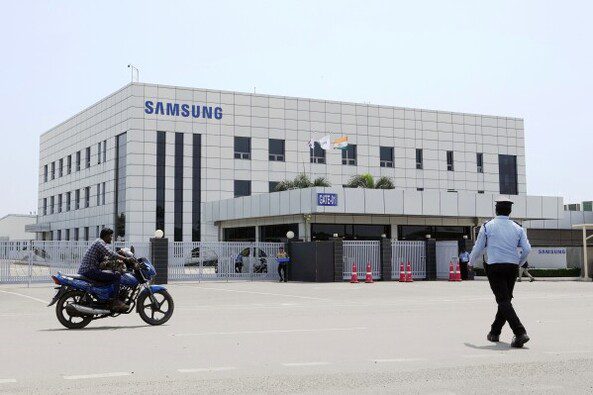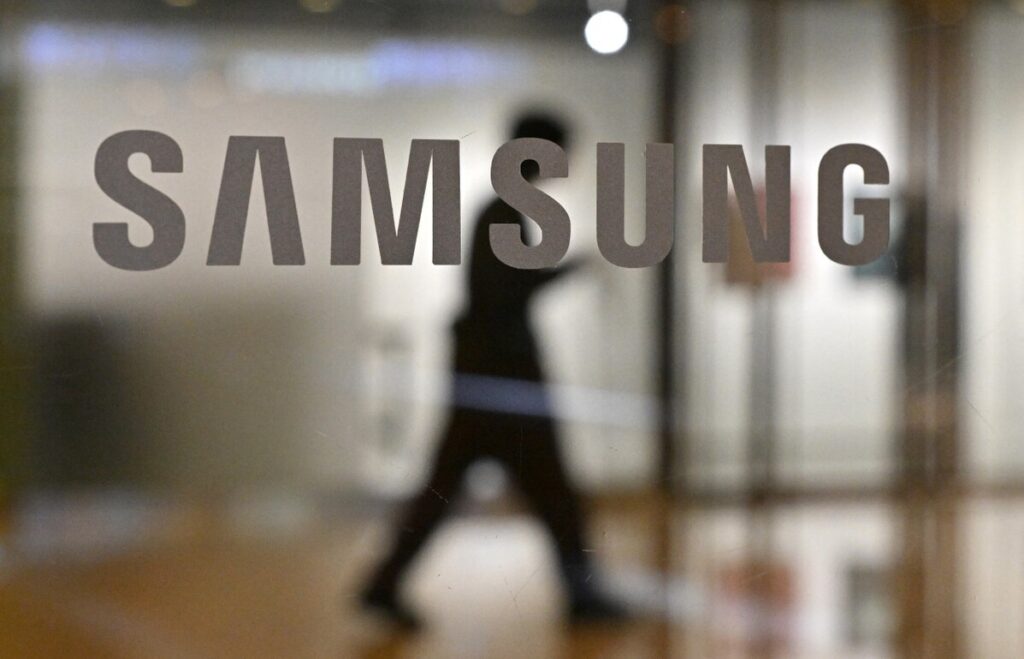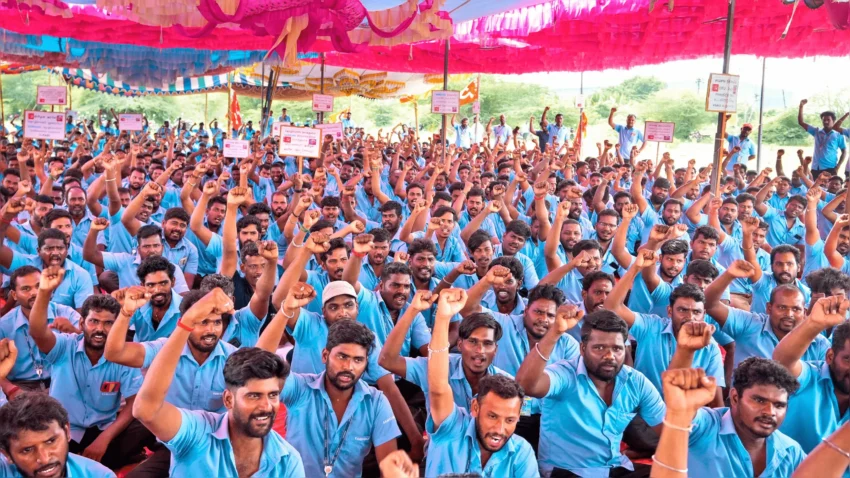Samsung’s manufacturing plant in Sriperumbudur, Tamil Nadu, India, has been facing a major strike since September 9, 2024. Over 1,000 workers have taken part in this ongoing protest, which has now stretched into its third week. The workers are demanding better wages and the formal recognition of their union. This labor unrest has disrupted the plant’s operations, which produces a variety of electronic appliances, including televisions, refrigerators, and washing machines.
Table of Contents
The Workers’ Demands
The key issue at the heart of the strike is the workers’ demand for a wage increase. The current salary for workers ranges between 30,000 to 35,000 rupees per month (around $425 USD). They are seeking a 25-30% raise, which would help them better manage the rising cost of living in India. Along with this, the workers are asking for formal recognition of their union, which they believe is essential for fair negotiations with Samsung’s management.
The union’s role is crucial, as workers want to ensure that their collective voice is heard and that their rights are protected. Without union recognition, employees feel they have little influence over their working conditions and pay, which is why this is one of the primary demands in their negotiations.
Samsung’s Response to the Strike
Samsung has responded to the strike by stating that it already offers competitive wages. According to the company, it pays its workers 1.8 times more than the average wage for similar roles in other companies within the region. The management has shown a willingness to negotiate with the workers but has been reluctant to engage with the Center of Indian Trade Unions (CITU), a powerful labor organization backing the workers.

Instead, Samsung has expressed a desire to negotiate directly with the employees rather than going through an external trade union. This has created friction between the two sides, as the workers believe that CITU’s involvement is necessary for a fair resolution.
Operational Disruptions at the Plant
The strike has caused significant disruptions at Samsung’s Sriperumbudur plant. Early reports indicated that production was cut by as much as 50-70% due to the labor stoppage. However, Samsung has since taken steps to minimize these losses. The company has managed to keep operations running with the help of non-striking workers, apprentices, and temporary hires. According to Samsung, production has now returned to near-normal levels, despite the ongoing strike.
Still, the workers maintain that these temporary measures cannot sustain full production in the long term. They believe that Samsung’s reliance on temporary labor is a short-term fix, and without a resolution to the strike, the company’s production will continue to face challenges.
The Role of the Center of Indian Trade Unions (CITU)
The Center of Indian Trade Unions (CITU) has played a significant role in supporting the workers during the strike. CITU is affiliated with India’s Communist Party, and its involvement has added a political layer to the dispute. The workers see CITU as a necessary partner in their fight for fair wages and union recognition, but Samsung has been hesitant to engage with the organization.

Samsung’s reluctance to involve CITU stems from its preference for direct negotiations with employees. The company argues that negotiating directly with workers would lead to a more productive discussion and faster resolution. However, the workers believe that having CITU on their side strengthens their position and ensures that their demands will be taken seriously.
Economic Impact of the Strike
The ongoing strike has broader implications beyond just the Sriperumbudur plant. Samsung’s facility in Tamil Nadu plays a crucial role in the company’s global supply chain, producing a range of household electronics not just for India but for international markets as well. The longer the strike continues, the more significant the impact will be on Samsung’s ability to meet consumer demand for its products.
The disruption in production could lead to delays in shipments and shortages of certain products, both in India and abroad. This is especially concerning for Samsung as it faces stiff competition in the global market for consumer electronics. If the strike continues unresolved, the company may struggle to keep up with orders, particularly during peak shopping seasons like the holidays.
Broader Labor Trends in India
The Samsung strike reflects a growing trend of labor movements across India, where workers are becoming increasingly vocal about their rights. As India’s economy grows and its industrial sector expands, workers are demanding better wages and working conditions. This is particularly true in sectors like manufacturing, where companies have traditionally benefited from India’s low labor costs.
However, as the cost of living rises and inflation continues to impact workers’ purchasing power, many employees are turning to strikes and protests to make their voices heard. The Samsung strike is just one example of this broader movement, and its outcome could have implications for other companies operating in India.
If the workers are successful in securing a wage increase and union recognition, it could encourage similar actions in other factories and industries. This would mark a shift in labor relations across the country, as workers push for more rights and better conditions.
Possible Outcomes
As the strike enters its third week, both sides remain at a standstill. Samsung has expressed a willingness to negotiate, but its refusal to engage with CITU has slowed progress. Meanwhile, the workers are holding firm in their demands, and the strike shows no signs of ending soon.
Several potential outcomes could result from the strike. If Samsung agrees to the workers’ demands, it would likely lead to a wage increase and formal recognition of the union. This would be seen as a major victory for the workers and could set a precedent for future labor negotiations in India.
On the other hand, if the strike continues without resolution, Samsung may face long-term disruptions to its production, which could hurt its bottom line. The company might also lose some of its temporary workers, who may not be able to keep up with the demands of full-time production.
Conclusion
The strike at Samsung’s Sriperumbudur plant is a significant labor dispute that has now lasted three weeks. With over 1,000 workers involved, the strike highlights the growing tensions between global corporations and local labor forces in India. As the workers demand better wages and union recognition, Samsung continues to navigate the challenges of keeping production running while managing the labor unrest.
The outcome of this strike could have lasting effects not just on Samsung but on the broader manufacturing sector in India. If the workers succeed, it could signal a new era of labor relations in the country, where workers are more empowered to demand better conditions and wages.

Anaya Shah is a seasoned consumer product analyst with over 8 years of experience in the retail and e-commerce industries. She holds a Master’s degree in Business Administration with a specialization in Marketing from a top-tier university. Anaya has a keen eye for detail and a passion for uncovering the true value of products, helping consumers make informed decisions. At BrandCritica.com, she brings her expertise in product evaluation, brand analysis, and market trends to deliver trustworthy and insightful content. Connect with Anaya on Instagram for the latest updates and reviews.

